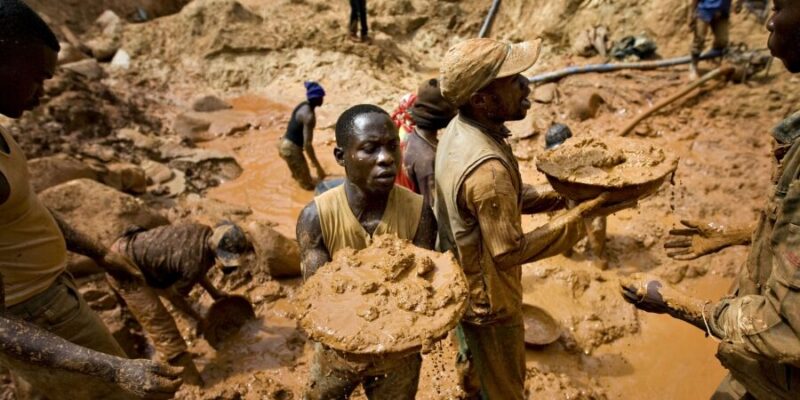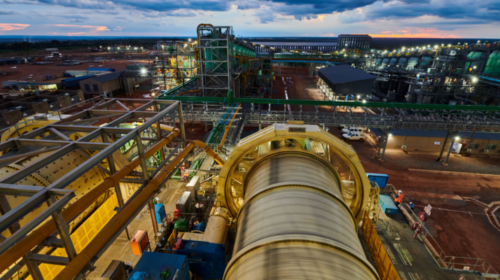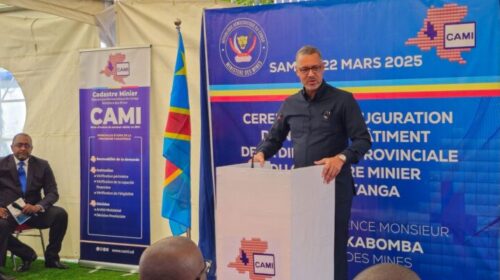Enhancing Artisanal Mining in the Democratic Republic of Congo
Artisanal mining plays a significant role in the Democratic Republic of Congo (DRC), contributing to the livelihoods of millions of people while also posing challenges related to environmental degradation, human rights abuses, and low productivity.
To unlock its full potential and promote responsible mining practices, a comprehensive approach is required. This article delves into key strategies to improve artisanal mining in the DRC, fostering economic growth, social development, and environmental sustainability.
Formalization and Regulation
The first step to improve artisanal mining in the DRC is to formalize and regulate the sector effectively. The government should create a conducive legal framework that protects the rights of miners, defines clear licensing procedures, and implements appropriate taxation policies.
By formalizing the sector, miners will be incentivized to follow responsible practices and prevent illegal activities, including smuggling and child labor.
Access to Finance and Training
Enhancing artisanal mining requires investment in education and training programs. Access to finance is crucial to upgrade equipment, adopt modern technologies, and improve mining techniques.
Collaborations with international organizations, NGOs, and private companies can help establish training centers that impart skills in safety, environmental protection, and efficient mineral extraction methods. Providing access to microfinance initiatives will empower miners to improve their livelihoods and break the cycle of poverty.
Strengthening Cooperative Structures
Promoting cooperative structures among miners can lead to collective bargaining power and better market access. Creating cooperative societies enables miners to pool resources, access loans more easily, and negotiate fair prices for their products. Additionally, these cooperatives can implement shared environmental and safety standards, leading to more sustainable practices.
Environmental Conservation and Sustainability
Artisanal mining is often associated with environmental degradation due to unregulated practices. Improving artisanal mining in the DRC requires implementing sustainable mining methods that minimize the impact on the ecosystem.
The government should encourage the use of eco-friendly technologies, such as mercury-free processing methods, and enforce strict environmental regulations. Furthermore, promoting reforestation and land reclamation initiatives can help restore ecosystems affected by mining activities.
Empowering Women in Artisanal Mining
Women play a significant role in the artisanal mining sector, but they often face discrimination and limited access to resources and opportunities.
Empowering women in the DRC’s mining communities can lead to improved livelihoods and greater economic growth. Initiatives focused on providing training, financial assistance, and leadership opportunities for women can help bridge the gender gap and contribute to more inclusive and sustainable mining practices.
Engaging Stakeholders and Responsible Sourcing
Engaging all stakeholders, including government agencies, mining companies, civil society, and local communities, is essential for a comprehensive approach to improving artisanal mining.
International buyers of Congolese minerals should also commit to responsible sourcing, ensuring they purchase minerals only from legal and ethical sources.
By doing so, they can encourage miners to adopt best practices and adhere to sustainable standards, ultimately enhancing the reputation of the DRC’s minerals on the global market.
Improving artisanal mining in the Democratic Republic of Congo requires a multi-faceted approach that addresses economic, social, and environmental aspects.
By formalizing the sector, providing access to finance and training, strengthening cooperative structures, promoting sustainability, empowering women, and engaging stakeholders, the DRC can unlock the potential of artisanal mining as a driver of sustainable development.
By implementing these strategies, the country can strike a balance between economic growth, social well-being, and environmental conservation, setting the stage for a brighter future for artisanal mining in the nation.
87 total views , 1 views today





